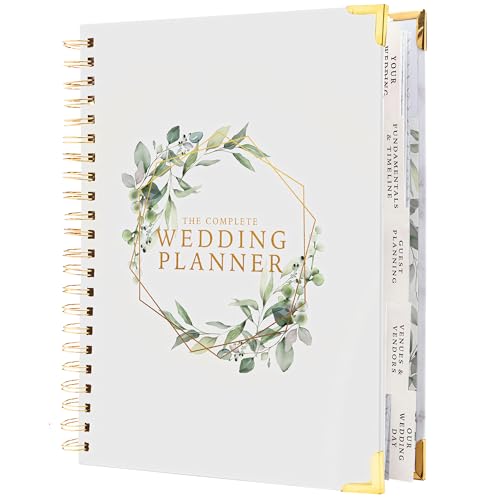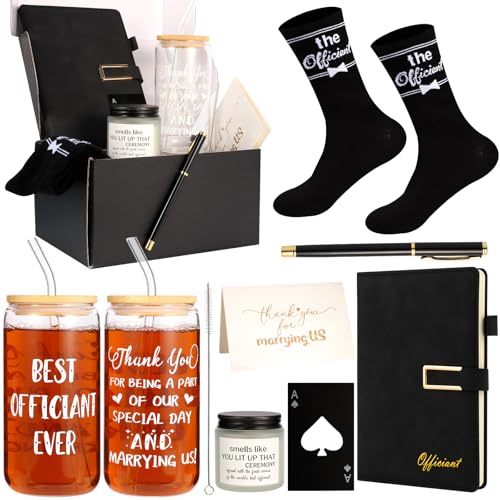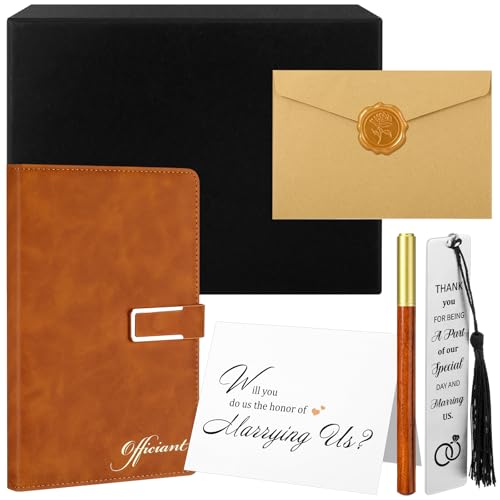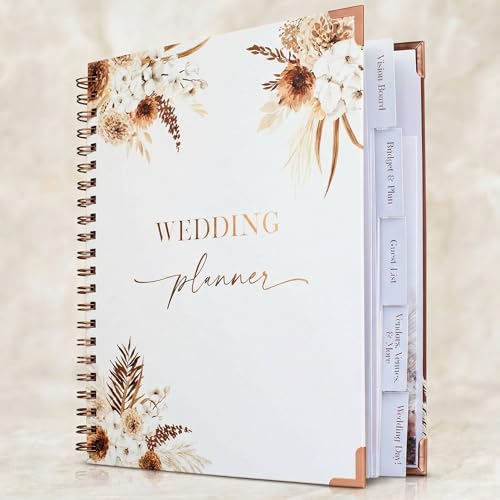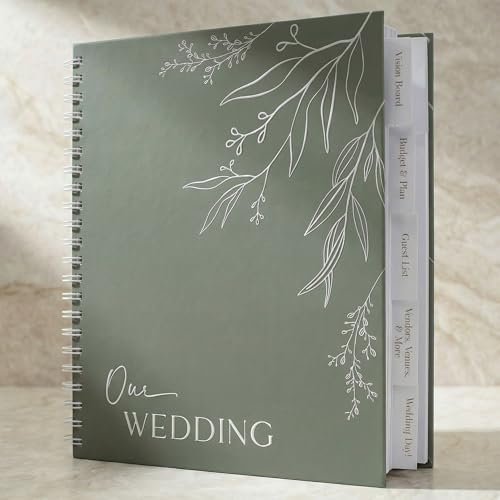Getting married in Pennsylvania can feel overwhelming with all the legal requirements and paperwork involved. We’ve helped countless couples navigate the Keystone State’s marriage laws and want to make your special day as smooth as possible.
Pennsylvania offers a straightforward marriage process once you understand the essential steps. From obtaining your marriage license to choosing the right officiant we’ll walk you through everything you need to know. Whether you’re planning an intimate ceremony or a grand celebration the legal requirements remain the same.
We’ve compiled this comprehensive guide to eliminate confusion and ensure you don’t miss any critical deadlines or documentation. You’ll discover exactly what documents to bring where to apply for your license and how long the process takes. Let’s turn your Pennsylvania wedding dreams into reality without the stress and uncertainty.
Understanding Pennsylvania Marriage Requirements
Pennsylvania establishes exact legal requirements that couples must fulfill before their wedding ceremony can legally take place.
Age Requirements and Consent Laws
Eighteen years old represents the minimum age for marriage in Pennsylvania without requiring parental consent. Couples between ages 16 and 17 can marry with written consent from both parents or legal guardians. The consent must be notarized and presented when applying for the marriage license.
Minors under 16 cannot obtain marriage licenses in Pennsylvania regardless of parental approval. Courts cannot override this age restriction through judicial consent. Both parties must provide valid photo identification showing their birth dates when applying for their marriage license.
Residency Requirements
No residency requirements exist for couples seeking marriage licenses in Pennsylvania. Out-of-state couples can obtain their marriage license from any county in Pennsylvania without establishing residency beforehand. The marriage license remains valid throughout the entire state once issued.
Couples can apply for their marriage license in any Pennsylvania county of their choosing. Many couples select counties based on convenience or proximity to their ceremony location. The issuing county does not restrict where the actual wedding ceremony takes place within Pennsylvania.
Waiting Periods and Time Limits
Three-day waiting period applies to all marriage licenses issued in Pennsylvania. Couples cannot use their marriage license for the ceremony until 72 hours after the application date. This waiting period excludes Sundays and legal holidays from the calculation.
Marriage licenses expire 60 days after the issue date if not used for a ceremony. Couples must complete their wedding ceremony within this timeframe or apply for a new license. The 60-day period begins counting from the original application date rather than when the waiting period ends.
Emergency situations allow courts to waive the three-day waiting period through special court orders. Medical emergencies or military deployment typically qualify for expedited processing. Couples must provide documentation supporting their emergency circumstances to receive court approval.
Required Documents and Materials
Gathering the correct paperwork ensures a smooth application process for your Pennsylvania marriage license. Both applicants must provide exact documents to verify identity and legal status.
Identification Documents Needed
Two forms of identification are required from each applicant when applying for a marriage license in Pennsylvania. The first document must be a valid photo ID such as a driver’s license, state-issued photo ID, passport, or military ID.
Social Security cards, printouts, or other proof of Social Security number serve as acceptable second forms of identification. Both documents establish your legal identity and eligibility to marry in the state.
Proof of Previous Marriage Dissolution
Documentation of divorce or death becomes necessary if either applicant was previously married. Divorce decrees must show the final dissolution of any prior marriage.
Death certificates suffice as proof when a previous spouse has passed away. County clerks verify these documents to ensure legal compliance before issuing new marriage licenses.
Additional Documentation for Special Circumstances
Birth certificates or alternative photo identification may substitute for Social Security documentation when applicants lack Social Security numbers. This accommodation addresses various immigration and residency situations.
Official translations are mandatory for all documents not originally written in English. Translation services must provide certified translations that county offices can accept as valid documentation.
Military personnel may present military identification cards as primary photo identification. Out-of-state residents face no additional documentation requirements beyond the standard identification materials.
Obtaining Your Marriage License
Couples must obtain a valid marriage license before their ceremony takes place in Pennsylvania. This critical step requires visiting the proper office and completing exact documentation requirements.
Where to Apply for a Marriage License
Clerk of Orphans’ Court offices in any Pennsylvania county accept marriage license applications. Couples can visit the office in any of the 67 counties regardless of where they live or plan to hold their ceremony. The marriage ceremony itself must take place within Pennsylvania state boundaries once you receive your license.
Application Process Step-by-Step
Both applicants must appear together at the Clerk of Orphans’ Court office to complete the application process.
Verify your age eligibility as both applicants must be at least 18 years old to apply without additional documentation.
Bring two forms of identification including your Social Security Number and a valid photo ID such as a driver’s license, non-driver photo ID, or passport.
Submit divorce decrees or death certificates if either applicant was previously married. Foreign language documents require notarized translations before submission.
Select your license type from two available options: traditional marriage licenses requiring an officiant or self-uniting marriage licenses that eliminate the need for an officiant during your ceremony.
Marriage License Fees and Payment Methods
Marriage license fees vary significantly by county across Pennsylvania’s 67 counties.
| County | Fee Amount | Additional Notes |
|---|---|---|
| York County | $70 | Plus debit/credit card processor fee |
| Allegheny County | $90 | Additional fees apply for prior divorces |
| Bucks County | $80 | Includes ACP fee and one certified Marriage Certificate |
| Lancaster County | $60 | Standard county fee |
Payment methods accepted include cash, certified checks, money orders, and credit/debit cards in most counties. Contact your chosen county office to confirm accepted payment methods before your visit.
Processing Time and Pickup Instructions
Three-day mandatory waiting period begins after you submit your completed application and required documentation. Couples cannot legally marry until this waiting period expires.
License expiration occurs 60 days after the three-day waiting period ends. Couples must complete their ceremony within this timeframe or apply for a new license.
Pickup options include collecting your license in person at the issuing office or requesting mail delivery to your specified address. Plan your pickup method based on your ceremony timeline and location preferences.
Choosing Your Wedding Officiant
Pennsylvania offers couples flexibility in selecting who performs their marriage ceremony. Understanding your officiant options helps ensure your wedding meets both legal requirements and personal preferences.
Authorized Officiants in Pennsylvania
Authorized officiants in Pennsylvania include judges, justices of the peace, mayors, and ordained ministers from recognized religious organizations. Retired judges maintain their authority to perform marriage ceremonies after leaving the bench. Active and retired military chaplains can officiate weddings when properly credentialed.
Religious leaders must present ordination credentials from established denominations or religious institutions. Ministers from online ordination services face scrutiny and may encounter challenges having their ceremonies recognized. County clerks verify officiant credentials before approving marriage licenses.
District justices and common pleas court judges perform civil ceremonies throughout Pennsylvania. Municipal officials like mayors and deputy mayors hold officiant authority within their jurisdictions. Notaries public cannot perform marriage ceremonies in Pennsylvania even though holding this authority in other states.
Religious vs. Civil Ceremonies
Religious ceremonies involve ordained ministers, priests, rabbis, or other faith leaders performing marriage rites according to their denominational traditions. These ceremonies typically occur in churches, synagogues, mosques, or other religious venues. Religious officiants incorporate exact vows, prayers, and rituals based on their faith traditions.
Civil ceremonies feature government officials like judges or justices of the peace conducting secular marriage proceedings. County courthouses, municipal buildings, and other public venues commonly host civil ceremonies. Civil officiants focus on legal requirements rather than religious elements during the ceremony.
Both religious and civil ceremonies carry identical legal weight in Pennsylvania. Couples choose based on personal beliefs, family traditions, and venue preferences. Religious ceremonies may include additional cultural or denominational requirements beyond state law.
Self-Uniting Marriage Option
Self-uniting marriages eliminate the need for third-party officiants entirely. Pennsylvania recognizes these ceremonies as legally binding when couples complete proper documentation and follow established procedures. Both applicants must be present during the ceremony and sign the marriage license together.
Self-uniting ceremonies require two adult witnesses to observe the proceedings and sign the marriage certificate. Couples create their own vows and ceremony structure without officiant oversight. This option appeals to couples seeking intimate ceremonies or those with exact philosophical or religious beliefs.
The self-uniting license costs the same as traditional marriage licenses across Pennsylvania counties. Couples must indicate their preference for self-uniting ceremonies when applying for their marriage license. Processing times and waiting periods remain identical to traditional marriage licenses.
Planning Your Wedding Ceremony
Once you obtain your marriage license, organizing the actual ceremony requires understanding Pennsylvania’s legal framework and ceremony requirements.
Legal Requirements for the Ceremony
Pennsylvania maintains exact ceremony requirements that couples must follow to complete their marriage legally. The ceremony must include vows exchanged between both parties and a pronouncement by the officiant under 23 PA CSA §1503. Both parties must be physically present during the ceremony and verbally declare their consent to marry. No exact wording is mandated for the vows or pronouncement, giving couples flexibility in personalizing their ceremony language.
The officiant must sign the marriage license immediately after completing the ceremony. Pennsylvania law requires the completed license to be returned to the issuing Marriage License Bureau within 10 days of the ceremony date. Couples using self-uniting licenses follow the same timeline requirements but handle the signing process themselves.
Witness Requirements
Pennsylvania does not require witnesses for wedding ceremonies, simplifying the ceremony planning process. Both parties must be present and declare consent, but no additional witnesses need to sign the marriage license or observe the ceremony. Couples choosing self-uniting marriages must have two adult witnesses present during their ceremony, though these witnesses do not sign the marriage license itself.
Ceremony Location Considerations
Wedding ceremonies can take place anywhere within Pennsylvania once you obtain your marriage license. The license remains valid statewide, allowing couples to choose venues in any county regardless of where they applied for the license. Popular ceremony locations include private residences, parks, beaches, hotels, and religious facilities. No advance notice to local authorities is required for ceremony locations, though couples should verify any venue-exact requirements or permits needed for their chosen location.
Completing the Marriage Process
Once we have our marriage license in hand and have waited through the three-day waiting period, we can proceed with the final steps to legally complete our marriage in Pennsylvania.
Signing the Marriage Certificate
The officiant must sign the marriage license immediately after pronouncing us married during our ceremony. Traditional marriage licenses require an authorized officiant such as a judge, justice of the peace, mayor, or ordained minister to perform this crucial step. Self-uniting marriages allow us to complete this process without an officiant present.
Two adult witnesses must sign the marriage certificate when we choose the self-uniting license option. Traditional ceremonies typically include witness signatures as well, though Pennsylvania law does not mandate witnesses for officiant-performed ceremonies. We should ensure all required signatures appear on the certificate before leaving our ceremony venue.
Both spouses must also sign the completed marriage certificate to finalize the legal documentation. The signature section requires legible names matching the identification documents we provided during our license application process.
Returning Documents to the Appropriate Office
The completed marriage certificate must be returned to the Marriage License Bureau that issued our original license within 10 days of our ceremony date. Our officiant bears responsibility for this filing requirement in traditional marriages, while we handle the return process ourselves when using self-uniting licenses.
We can return the documents in person to the county office where we obtained our license. Mail delivery represents another acceptable option for submitting our completed marriage certificate, though we should use certified mail to ensure proper delivery confirmation.
Counties across Pennsylvania maintain different exact procedures for document return, so we should verify the exact requirements with our issuing office. Some counties provide prepaid envelopes with marriage licenses to streamline the return process.
Timeline for Official Recording
Our marriage becomes legally recognized once the completed certificate reaches the issuing county office and gets officially recorded in their system. Most Pennsylvania counties process returned marriage certificates within 5 to 10 business days after receiving the completed documentation.
We can request certified copies of our marriage certificate approximately 2 weeks after our ceremony date. These certified copies cost between $10 and $20 per copy depending on the exact county requirements.
The official recording creates our permanent marriage record in Pennsylvania state databases. We should contact the issuing Marriage License Bureau if we do not receive confirmation of our marriage record within 3 weeks of our ceremony date.
After Getting Married
Completing your Pennsylvania marriage ceremony marks the beginning of important administrative tasks that ensure your new marital status receives proper legal recognition.
Obtaining Certified Copies of Your Marriage Certificate
Certified copies of your marriage certificate become available approximately 2 weeks after your ceremony once the Marriage License Bureau processes your returned license. The processing timeline begins when your officiant or you submit the completed marriage certificate within the required 10-day window.
Request certified copies directly from the Marriage License Department in the county where you obtained your original license. Most Pennsylvania counties charge between $10 and $20 per certified copy, with fees varying by location.
Order multiple certified copies during your initial request since you’ll need separate copies for different agencies and institutions. Banks, insurance companies, and government offices typically require original certified copies rather than photocopies for name change verification.
Name Change Process
Your marriage certificate serves as the primary legal document for changing your name following your Pennsylvania wedding. This certified document provides the official proof required by federal and state agencies to update your records.
Begin the name change process by obtaining your certified marriage certificate from the issuing county. Pennsylvania residents can change their surname, adopt their spouse’s name, or create a hyphenated combination using this documentation.
Submit your marriage certificate to the Social Security Administration first, as other agencies often require an updated Social Security card before processing name changes. The SSA typically processes name change requests within 2 weeks of receiving complete documentation.
Visit your local Social Security office with your certified marriage certificate and current identification to complete Form SS-5. Bring your current driver’s license or state ID, along with your marriage certificate, to verify your identity and new name.
Updating Legal Documents and Records
Update your driver’s license within 15 days of your name change at any Pennsylvania Department of Transportation office. PennDOT requires your updated Social Security card, certified marriage certificate, and current license for processing.
Change your passport information through the U.S. Department of State using Form DS-82 for name changes within one year of issuance. Submit your current passport, certified marriage certificate, and a new passport photo along with the required $130 fee.
Contact your bank and credit card companies to update account names using your certified marriage certificate. Financial institutions typically require you to visit in person with proper identification to modify account information.
Update your voter registration through your county’s Board of Elections office or online through the Pennsylvania Department of State website. Pennsylvania requires updated voter information within 30 days of any name or address changes.
Notify your employer’s human resources department to update payroll records, health insurance beneficiaries, and retirement account information. Most employers require a copy of your marriage certificate to process these changes through their internal systems.
Contact your insurance providers, including auto, health, and life insurance companies, to add your spouse and update policy information. Insurance companies often provide discounts for married couples and may require documentation to verify your new marital status.
Special Circumstances
Certain situations require additional documentation or present unique considerations when obtaining a marriage license in Pennsylvania.
Military Personnel Requirements
Military personnel must present their military ID as their primary photo identification when applying for a marriage license. Active duty service members stationed outside Pennsylvania can still apply for a license in any Pennsylvania county without residency restrictions. Deployed military personnel may need to coordinate timing carefully due to the 60-day license validity period and three-day waiting period requirements.
International Marriage Considerations
Pennsylvania marriage licenses remain valid only within Pennsylvania state boundaries and do not extend legal recognition to other states or countries. International couples can obtain and use a Pennsylvania marriage license for ceremonies within the state. Foreign nationals must provide acceptable identification documents, with certified English translations required for any non-English paperwork. Embassy or consulate services may assist with document authentication and translation needs for international applicants.
Remarriage After Divorce or Death of Spouse
Pennsylvania imposes no mandatory waiting period for remarriage following divorce or spousal death. Previously married applicants must provide documentation proving the legal termination of their prior marriage. Divorce requires a certified copy of the final divorce decree or dissolution order. Death of a former spouse requires a certified death certificate as proof. Counties may request additional verification depending on the exact circumstances of the previous marriage’s end.
Common Issues and Troubleshooting
Marriage license complications can derail wedding plans without proper preparation. Understanding common problems helps couples navigate Pennsylvania’s marriage requirements smoothly.
Expired Marriage License Answers
Marriage licenses expire after 60 days and require immediate action to remedy the situation. Couples must return the expired license to the issuing office and pay the full application fee again to obtain a new license. Pennsylvania counties like Erie charge $65 for replacement licenses including certified copies.
Processing the new application follows the same three-day waiting period as the original license. Both applicants must appear in person again to complete the replacement application in counties that require physical presence.
Missing or Incorrect Documentation
Documentation errors prevent marriage license approval and create unnecessary delays in the application process. Applicants must provide two forms of identification including valid photo ID and Social Security proof before submitting their application.
Previously married individuals face additional documentation requirements for divorce decrees or death certificates. International couples must submit certified English translations for foreign documents to meet Pennsylvania’s verification standards.
Reviewing all paperwork before the appointment prevents rejection and eliminates the need for return visits to complete the application.
Ceremony Date Changes
Ceremony date modifications require no additional paperwork once couples possess valid marriage licenses within the 60-day timeframe. Couples retain flexibility to reschedule their wedding without contacting the Marriage License Bureau or paying additional fees.
Rescheduling beyond the 60-day validity period creates an expired license situation requiring complete reapplication. Planning ceremony dates at least one week after obtaining the license provides buffer time for unexpected changes.
Out-of-State Officiant Complications
Pennsylvania does not specify marriage solemnization requirements for officiants from other states creating potential legal uncertainties. Couples using out-of-state officiants must verify authorization with local authorities before proceeding with ceremonies.
Religious ministers ordained in other states typically receive recognition for Pennsylvania marriages. Civil officiants like judges or justices of the peace require confirmation of their authority to perform marriages across state lines.
Self-uniting marriage licenses eliminate officiant complications entirely by allowing couples to marry themselves with two adult witnesses present during the ceremony.
Conclusion
Getting married in Pennsylvania doesn’t have to be overwhelming when you’re prepared with the right information. We’ve covered everything from obtaining your marriage license to choosing the perfect officiant for your special day.
Remember that Pennsylvania’s marriage laws are designed to be accessible whether you’re residents or visiting from out of state. The three-day waiting period and 60-day validity window give you flexibility in planning your ceremony.
Whether you choose a traditional wedding with an officiant or opt for Pennsylvania’s unique self-uniting marriage option we’re confident you now have the knowledge to navigate the process smoothly. Take your time gathering the required documents and don’t hesitate to contact your local Clerk of Orphans’ Court office if you have exact questions about your situation.
Frequently Asked Questions
What is the minimum age requirement to get married in Pennsylvania?
You must be at least 18 years old to marry without parental consent in Pennsylvania. Those aged 16-17 can marry with notarized consent from both parents or legal guardians. Minors under 16 cannot obtain marriage licenses in Pennsylvania under any circumstances.
Do we need to be Pennsylvania residents to get a marriage license?
No, Pennsylvania has no residency requirements for marriage licenses. Out-of-state couples can apply for and obtain a marriage license in any Pennsylvania county, making it convenient for destination weddings or couples from neighboring states.
How long do we have to wait after applying for our marriage license?
Pennsylvania requires a mandatory three-day waiting period after applying for your marriage license before you can have your ceremony. In emergency situations, you may petition the court to waive this waiting period with proper justification.
What documents do we need to bring when applying for a marriage license?
Both applicants must provide two forms of identification: a valid photo ID (driver’s license, passport, or state ID) and proof of Social Security number. If previously married, you must also bring certified copies of divorce decrees or death certificates.
How long is a Pennsylvania marriage license valid?
Marriage licenses in Pennsylvania are valid for 60 days from the date of issue. If you don’t use your license within this timeframe, it expires and you’ll need to reapply and pay the full fee again to obtain a new license.
Can we perform our own marriage ceremony in Pennsylvania?
Yes, Pennsylvania offers self-uniting marriage licenses that don’t require an officiant. This Quaker tradition allows couples to marry themselves with two adult witnesses present. The application process is the same as traditional licenses, just specify “self-uniting” when applying.
What happens if our marriage license expires before our wedding?
If your license expires, you must return it to the issuing office and reapply completely, paying the full fee again. You cannot extend or renew an expired license. Plan your ceremony within the 60-day validity period to avoid this issue.
Who can legally officiate our wedding in Pennsylvania?
Authorized officiants include judges, justices of the peace, mayors of cities, and ordained ministers of any religion. Civil and religious ceremonies have equal legal weight. Verify that out-of-state officiants are authorized to perform marriages in Pennsylvania before your ceremony.
How much does a marriage license cost in Pennsylvania?
Marriage license fees vary by county in Pennsylvania, typically ranging from $30-$80. Contact your chosen county’s Clerk of Orphans’ Court office for exact fees. Most offices accept cash, money orders, or certified checks, though some may accept credit cards.
Can we change our wedding date after getting our license?
Yes, you can change your ceremony date without additional paperwork as long as it falls within your license’s 60-day validity period. However, if you need to reschedule beyond the expiration date, you’ll need to reapply for a completely new license.










